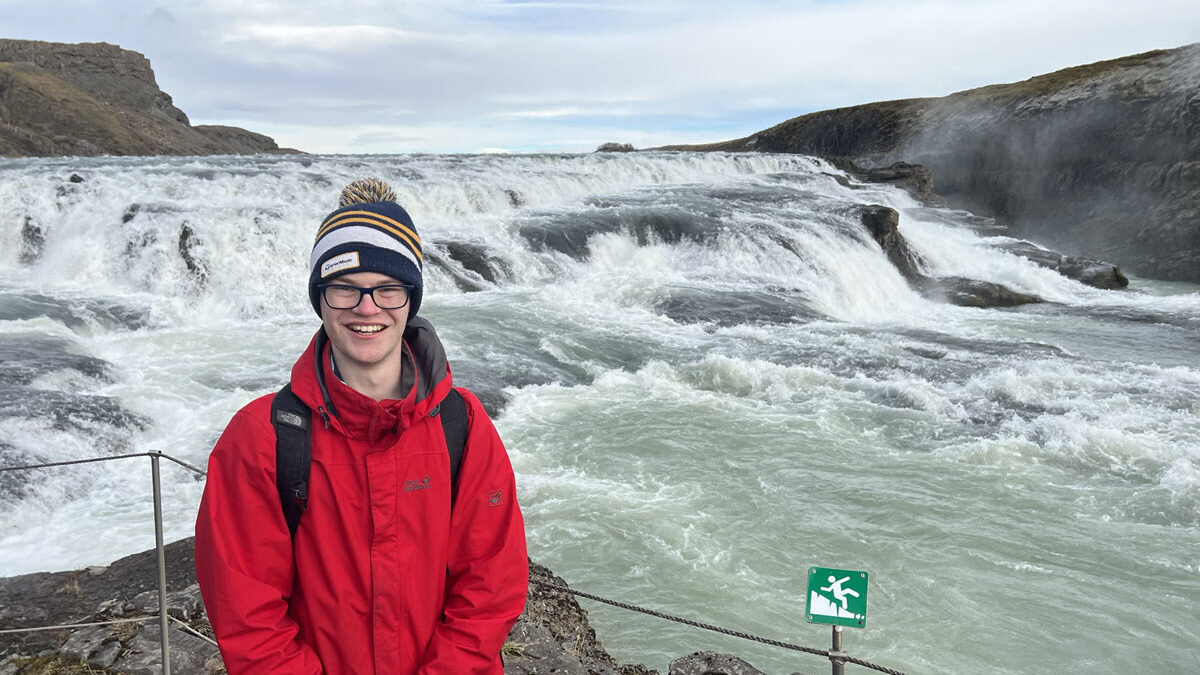ESRS 2022 Two Weeks Training Grant Report by Christopher McCausland

Christopher McCausland
Engineering PhD Researcher at Ulster University, Belfast, Northern Ireland, United Kingdom
Grant Description
Grant Received: Two-Week Training Grant
Hosting Institution: Reykjavik University Sleep Institute (RUSI), Reykjavík University, Iceland
Visit Dates: 6 to 22 October, 2022
Project: Visited Dr. Erna Sif Arnardóttir and the SLEEP REVOLUTION team in Reykjavík University, Iceland, with the aim to learn more about the field of sleep and the Sleep Revolution project..
Supervisor: Erna Sif Arnardóttir
Grant Report
My Name is Christopher McCausland and I am a PhD researcher at Ulster University, Northern Ireland. My research focuses on Time-Frequency analysis of PSG signals and their automation, using methodologies that are ‘explainable’ to clinicians. I have a background in Electronic Engineering, specifically signal processing. While I have experience in processing biomedical signals, the field of sleep was a new area to me when I started my research. A few months into my PhD research I came across the Sleep Revolution Project. I reached out to Erna Sif Arnardóttir and the Sleep Revolution Team and applied for the two-week training grant with the ESRS.
I arrived to a warm welcome from the Sleep Revolution Team in Reykjavík; we discussed my own research and I was given the opportunity to present my current work to the Team. This lead to an insightful Questions and Answers Session with sleep technologists, computer scientists and engineers all present. The questions asked fundamentally improved my research. I subsequently had the opportunity to then ask questions about the ongoing research within the Sleep Revolution Project. The current work was nothing short of outstanding and I am excited to see the changes that will come as a result. The next edition of the ESRS Sleep Medicine Textbook may look very different! Gaining insight into the current problems within sleep medicine from domain experts, such as the challenge of interscorer reliability, helped to highlight areas where research could make a significant difference. While in Reykjavík, I also took the opportunity to undergo a three-night sleep study and met with the in-house sleep technologist team to discuss how these studies are scored. As I had limited clinical experience with my electronic engineering background, this massively improved my understanding of the process and helped to further highlight the difficulty of scoring.
I also had the opportunity to partake in an Artificial Intelligence workshop, based on sleep, and contribute towards the current SR work. In addition, I was able to expand my own knowledge of clinical sleep medicine and communicate directly with domain knowledge experts; from clinicians to computer scientists and other PhD researchers. This has had a direct impact on my own research quality. I have made good friends and valuable colleagues and have begun to collaborate with them on future research.
Finally, it would be remiss of me not to mention the beauty of Iceland. During my evenings and weekends, I was able to explore Reykjavík and further into Iceland. I quickly fell in love with the rugged terrain and sheer beauty. I would like to thank the ESRS for the opportunity to complete this training grant. The knowledge that I received has benefited my work within the sleep research field. I would also like to thank Erna and the Sleep Revolution Team for welcoming me into the team and allowing me complete transparency into their work and research; this was beyond valuable to me and I am looking forward to collaborating in the future.
Best Regards,
Christopher McCausland
PhD-student at Ulster University,
Belfast, Northern Ireland



Photos taken by Christopher McCausland during is visit to Reykjavík University in Iceland.



